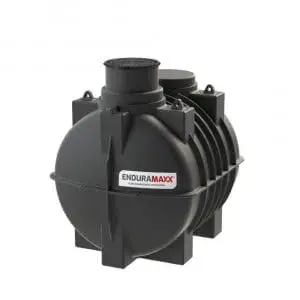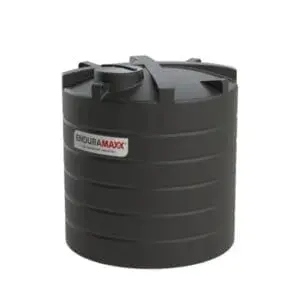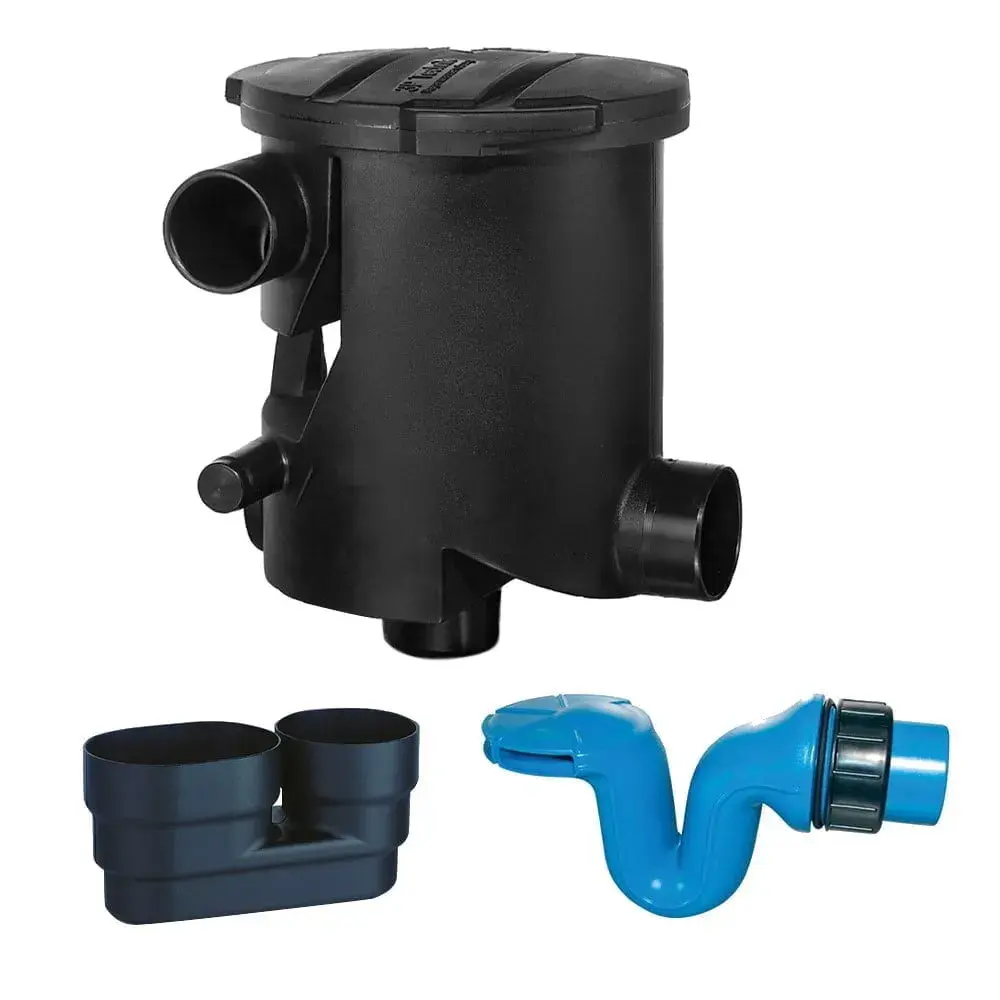Recycling wastewater in the stone, marble & granite cutting industry makes sense as stone fabrication shops tend to use a lot of water. So water costs are high. In addition, they have to comply with stringent regulations for the disposal of wastewater, so it makes sense to install a wastewater treatment system, to save costs and keep compliant.
The sources of wastewater
Where granite blades and tools are used, or blades of quartzite, then contaminated wastewater is produced. Saws and grinders produce dust – dust that must be washed away as wastewater.
An average stone shop might use up to 15,000 gallons of water a day, as this water needs to be treated before disposal, implementing water recycling can mean a lot of savings.
Why stone cutting wastewater cannot be sent to drain
The wastewater from stone fabrication contains significant pollutants as suspended particles in the water and silica dust needs to be minimized. If the treatment is inadequate, harmful contaminants can be released into the environment, including heavy metals, corrosives and flammable liquids, cyanide and other poisons.
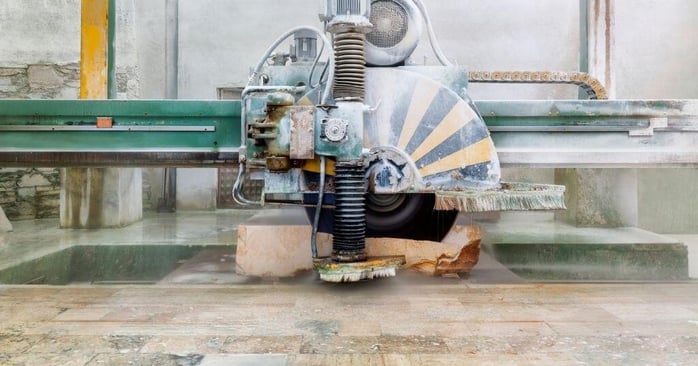
Recycling for reducing water costs in stone fabrication
Before installing a system to treat the wastewater you need to work out the costs – and the potential savings. Some of the questions you need to ask include:
- How much water do you use?
- Could combining with rainwater harvesting help reduce water bills further?
- What is your water bill?
- Do you intend to expand?
- What about space?
- The mix of natural/engineered stone in my product?
- The health of my employees
The system for treating wastewater in the stone fabrication industry
The wastewater has to be collected in tanks. The solids separated from the liquid component to form slurry or sludge. The water decanted off for further treatment and recycling and the sludge dewatered prior to removal and disposal.
Slurry separation and dewatering the slurry
The wastewater effluent is collected in tanks. Here the process of separating the solids suspended in the liquid take place. Coagulants are added to the mix, this neutralises negative charges on molecules, so they can merge to form small particles which then aggregate together forming larger masses when flocculants are added.
These flocs sink to the bottom of the tank and can be removed. This is easy to do when the tank is conical since the sediment collects in the cone at the bottom of the tank.
What is decantation?
Once the flocs have settled at the bottom of the tank the clarified water can be decanted off into other containers by means of openings in the sides of the tank, thus separating it from the sludge.
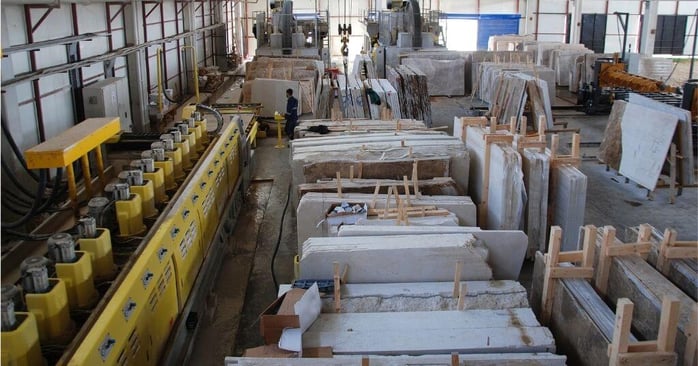
What types of sludge is produced in the stone fabrication industry?
The sludge is the sediment that settles at the bottom of the tank. It is often semi-fluid and needs dewatering before disposal.
How is sludge treated?
The slurry must be separated from the clarified water and dewatered to make it denser and firmer, more ready for disposal. During this process, valuable heavy metals and other parts of the sludge can be separated out for reuse elsewhere.
The sludge is first thickened to reduce its water content and volume. This is often done using gravity in a settlement tank. This often reduces the volume by 50% or less.
Dewatering then reduces the water content to around 20%, making its disposal less of a problem. Filter presses offer one effective method by squeezing the out of the tank.
Which Enduramaxx tanks can help with stone fabrication wastewater?
We keep a large range of tanks suitable for every stage in the process of recycling wastewater in the stone fabrication industry. We can supply storage tanks, conical sludge tanks and chemical dosing tanks. All are made from rotationally moulded plastic for many years of service (with a 10-year guarantee).
The non-reactive materials, corrosion and rust-free together with the smooth inner surfaces for easy and complete cleaning make our tanks eminently suitable for the stone fabrication industry. Give us a call to discuss your recycling wastewater in the stone, marble & granite cutting industry needs on 01778 562810.
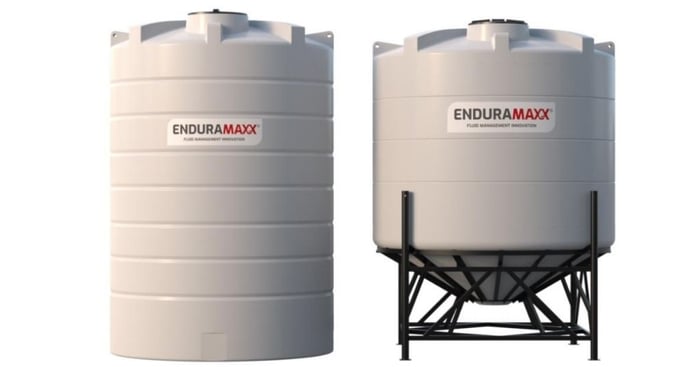
Posts By Topics
- Blog (303)
- Chemical Storage Tanks (118)
- Chemical Dosing Tanks (114)
- Chemical Tanks (114)
- Water Tanks (58)
- Rainwater Harvesting Tanks (43)
- Vertical Rainwater Tanks (31)
- Vertical Storage Tanks (31)
- Cone Bottom Tanks (19)
- Conical Cone Tanks (18)
- Rainwater Harvesting (17)
- Water Bowsers (15)
- Horizontal Tanks (14)
- Potable Water Tanks (13)
- Farming (9)
- Case Studies (8)
- Industrial Storage Tanks (7)
- Liquid Fertilser Storage Tanks (6)
- WRAS Approved Potable Tanks (6)
- Wine and Beer Production (6)
- Horizontal Transport Tanks (5)
- Microbrewery (5)
- Rainwater (5)
- Category 5 Break Tanks (4)
- Cider Production (4)
- Mixer Tanks (4)
- Molasses Tanks (4)
- Polyethylene tanks (4)
- Rainwater Filter Kits (4)
- SPECIALIST & BESPOKE TANKS (4)
- Bunded Tanks (3)
- Slimline Tanks (3)
- WRAS Approved (3)
- Clarification Tanks (2)
- Crosslinked Polymer Tanks (XLPE) (2)
- Fertiliser Tanks (2)
- Sump Tanks (2)
- Tank Installation (2)
- Water Butt (2)
- underground water tanks (2)
- ACCESSORIES & FITTINGS (1)
- ATV & UTV SPRAYING UNITS (1)
- Above Ground Effluent Tanks (1)
- Bespoke Tank Frames (1)
- Category 5 Turret (1)
- Caustic Soda Tanks (1)
- Closed Top Bunded Tanks (1)
- Craft beer (1)
- Effluent Tanks (1)
- Enduramaxx (1)
- Ferric Chloride Tanks (1)
- Fire Safety Regulations (1)
- Fire Sprinkler Water Storage Tanks (1)
- Industrial Water Tank (1)
- Open Top Bunded Tanks (1)
- Open Top Cone Tanks (1)
- Open Top Vertical Tanks (1)
- Polyethylene Potable Water Tanks (1)
- Polyvinylidene Fluoride (PVDF) Tanks (1)
- Polyvinylidene Fluoride Tanks (PVDF) (1)
- Pressure Washers (1)
- Pro Series Spot Sprayers (1)
- RWH (1)
- Sodium Hydroxide Storage Tanks (1)
- Sprayer Fill-up Tanks (1)
- Uncategorised (1)
- liquid fertiliser tank (1)
Sign up to the newsletter
enduramaxx.marketing
Related Posts
Primary Settlement Tanks In Water Treatment: Why Are They Used?
Clarification or primary settlement tanks are used for a wide variety of applications in the...
Industrial Wastewater Treatment Using Microalgae
Industrial wastewater treatment using microalgae wastewater treatment systems can remove heavy...
Components of a Wastewater Treatment System
A wastewater treatment system is designed to treat wastewater from factories, agriculture and...
Related Products
From £1,080.00 inc. VAT
£900.00 exc. VAT
From £1,344.00 inc. VAT
£1,120.00 exc. VAT
From £768.00 inc. VAT
£640.00 exc. VAT
£480.00 inc. VAT
£400.00 exc. VAT




